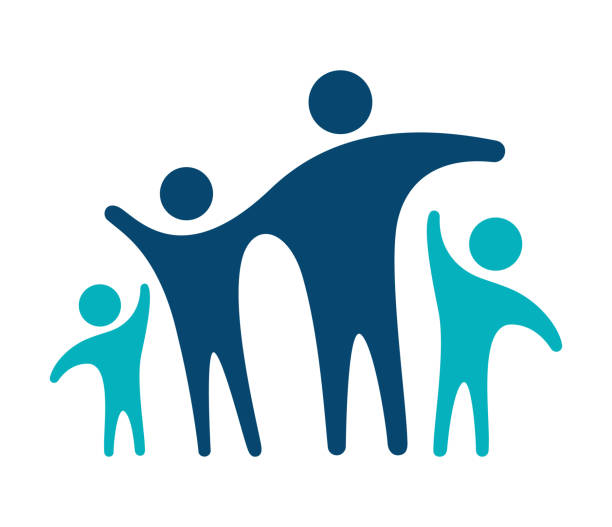For my third article in the series on seniors with an inspiring journey, I chose to interview Diane Riendeau, a woman of 78 years old that has to deal with her son’s mental health disorder and who has an extraordinary job: family peer support. She does this work at the PASM (Perspective autonomie santé mentale).
I met Diane when I finished my peer support training. We met at a meeting at l’Institut universitaire en santé mentale de Montréal (IUSMM). Afterwards, I added Diane to my social network.
In this article, I will talk about the recovery journey of Diane’s son as well as family peer support. I will end by answering the question Why Diane is an inspiring role model whose loved one is living with mental illness.
Her son before the illness
Diane became pregnant by accident, but she wanted her child because she was no longer taking birth control. Her son was born by caesarean section because his heart rate was unstable. It was a baby of low weight but who gained weight normally two months later.
Diane had post-partum depression: “I was so caught up with my baby that I did not want anyone to take him, other than my husband. I did not want to leave him with strangers, it was my possession. I was like a wolf defending her cub.” She also found it difficult living with three people and she would ask herself if all women were going through this. Regardless, Diane was not unhappy and she states without a shadow of a doubt that she enjoyed her baby during infancy, childhood and early adulthood.

The beginning of her son’s illness
In his early twenties, her son was diagnosed with schizophrenia. He was using drugs, and started to have outward signs, such as laughing to himself: “I would drive him back to the university, he did not want to sit in the passenger seat, he would sit in the back, and I would see in my rearview mirror that he was laughing.”
Subsequently, he was seen by a psychiatrist with his parents. The psychiatrist was trying to give him antipsychotics but he did not want to take them because he didn’t feel sick. He had become paranoid about his parents. Despite this, the psychiatrist was able to see him every two weeks in an outpatient clinic.
The acute phase of her son’s illness
At one point, the atmosphere at home became very tense: “My partner almost came to blows with my son”. Diane’s husband wanted to kick him out, which was out of the question for Diane. She asked the social worker of her son to find him a place to live “because we can’t take it anymore”.
Eventually, a room became available at centre espoir on the south-shore and her son moved there. However, at the end of two years and a half, they told him that he could not stay because he had not improved enough. The son’s social worker wanted him to stay in foster care, but Diane disagreed. Diane saw him more at the Phare in Longueuil, being rooms directly linked to the hospital’s social services department.
As for the treatment, one day, her son’s psychiatrist asked the court for an obligation of care. Diane says: “I testified against my son. He was so sick that even with the court order, he agreed to go to dinner with us in the evening.”

Her son’s path to recovery
Diane’s son has thus evolved favourably at the Phare. He stayed there 5 and a half years and he even worked there as part of a PAAS Action program. For the past three years, he has been living in an English-language organization in Saint-Lambert, in a 5 and a half apartment with two other roommates. Since 1 year, he works as a clerk in a pharmacy. He receives an antipsychotic injection every 5 weeks.
How Diane became family peer support
Over time, Diane became more equipped to deal with schizophrenia. She started to attend associations for loved ones, the SQS (Société Québécoise de la schizophrénie), participate in self-help groups and attend conferences at the Douglas Institute. She told herself: He’s going to live the rest of his life with this, I need to understand his illness.”

One day, the director of the SQS sends a memo to the members to say that there was training to become a family peer support. The training was given by Nathalie Lagueux and Sandrine Rousseau of the AQRP (Association Québécoise pour la réadataption psychosociale). Even though she found the acute phase of her son’s illness challenging, Diane felt better about her recovery journey as a mother. So she decided to take the plunge.
The role of family peer support
According to Diane, a family peer support is a mentor or role model for families whose loved one is living with a mental health disorder. The family peer support must reveal himself with finesse: “This morning, I had a mother, she wanted to be a savior, like I wanted to save my son.” They must also actively listen to the experiences expressed by those around them. The family peer support gives hope. To do this, Diane suggests that those around her meet a peer support who lives with schizophrenia: “It’s like a tunnel, there is a light at the end but it’s small. You will see it, in meeting a peer support, the light will get bigger.”
The family peer support talks about the stages of recovery: “Me too, I was like you, in shock, I have been in denial.” She invites the people around her to register for conferences or she suggests books to better understand the illness.

The place of the family peer supporter within the treatment team
The family peer support today has an important place in the treatment team but this was not always the case: “In the beginning, I did not even have the right to enter the nurses’ station. The professionals had never seen a family peer support and they did not know my role well.” Diane even says that at the IUSMM, a social worker told her that she was taking her job. To date, the role of the family peer support is better known. They participate in multidisciplinary meetings at the request of the psychiatrist or of the family, on the condition that the loved one is in agreement. They meet with the families that are referred to them by the professionals.
What Diane is most proud of
Diane is proud of everything that her son has accomplished even with the limits imposed by his illness. She is proud of who she’s become: “I came from from far, I would cry in my basement wondering what I was going to do with my son. Then, I learned to accompany him, to present him with things.” She is also proud of her partner despite their differences. He enrolled in training courses to better understand her son, and one day he was even able to talk about mental illness with his co-workers.
Why, according to me, Diane is a role model for the families who have loved ones living with mental illness
Diane is a role model for families who have a loved one living with mental illness because she realized that she could not save her child but she could be with him. At first, she experienced the shock of diagnosis, anger and denial. Then, she learned to live with her son, who is different from the one she knew at the beginning, with his strengths and weaknesses.
Diane invested herself in the recovery of her son and her own recovery as a mother. She learned a lot about the disease and got involved in associations for the loved ones. Over time, she has been able to take her place within the treatment teams. Finally, she is always curious to learn about mental health.

Très inspirant, sucite les familles et proches à aller chercher de l’aide et donne de l’espoir quant aux personnes vivant un trouble mental et leur famille.